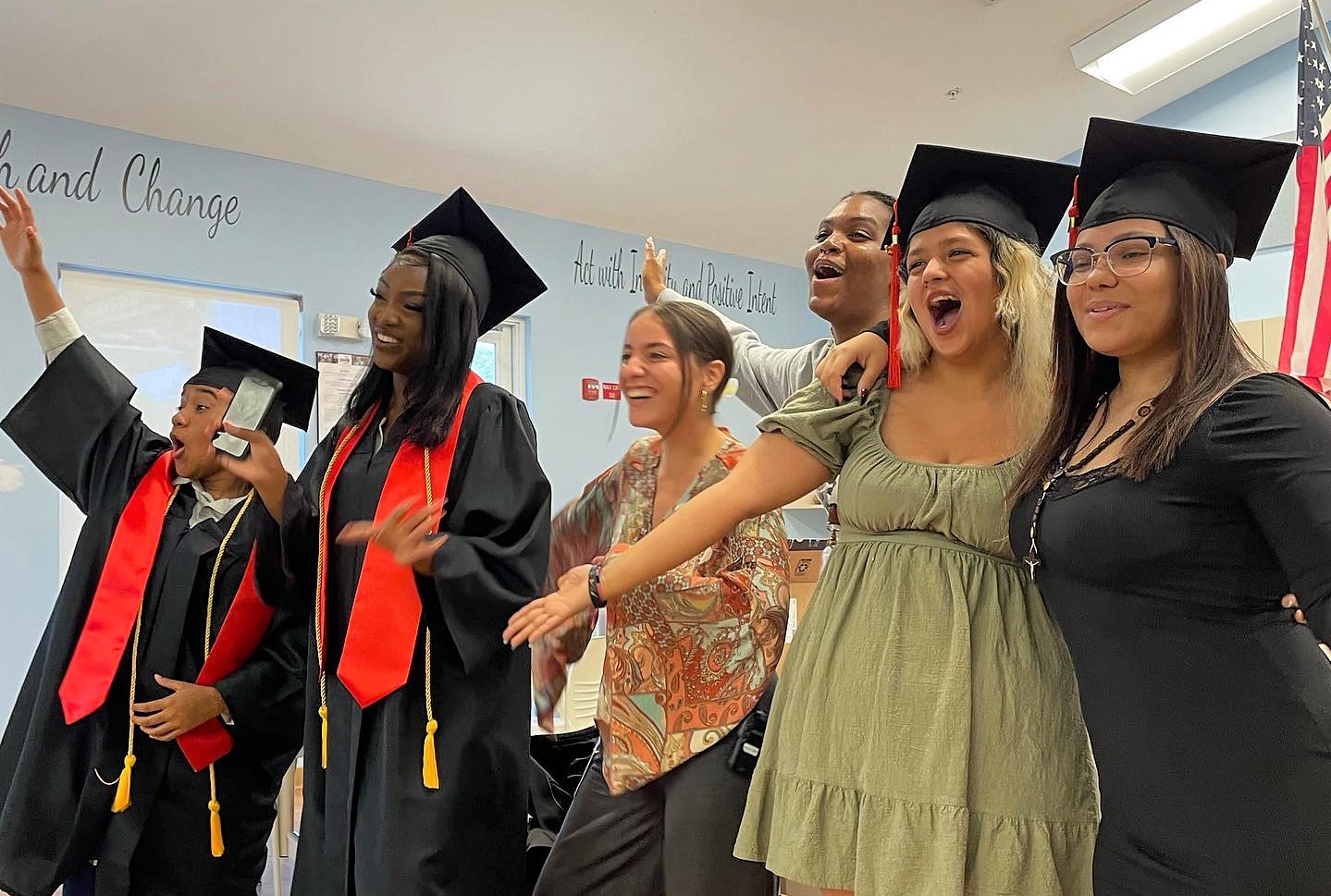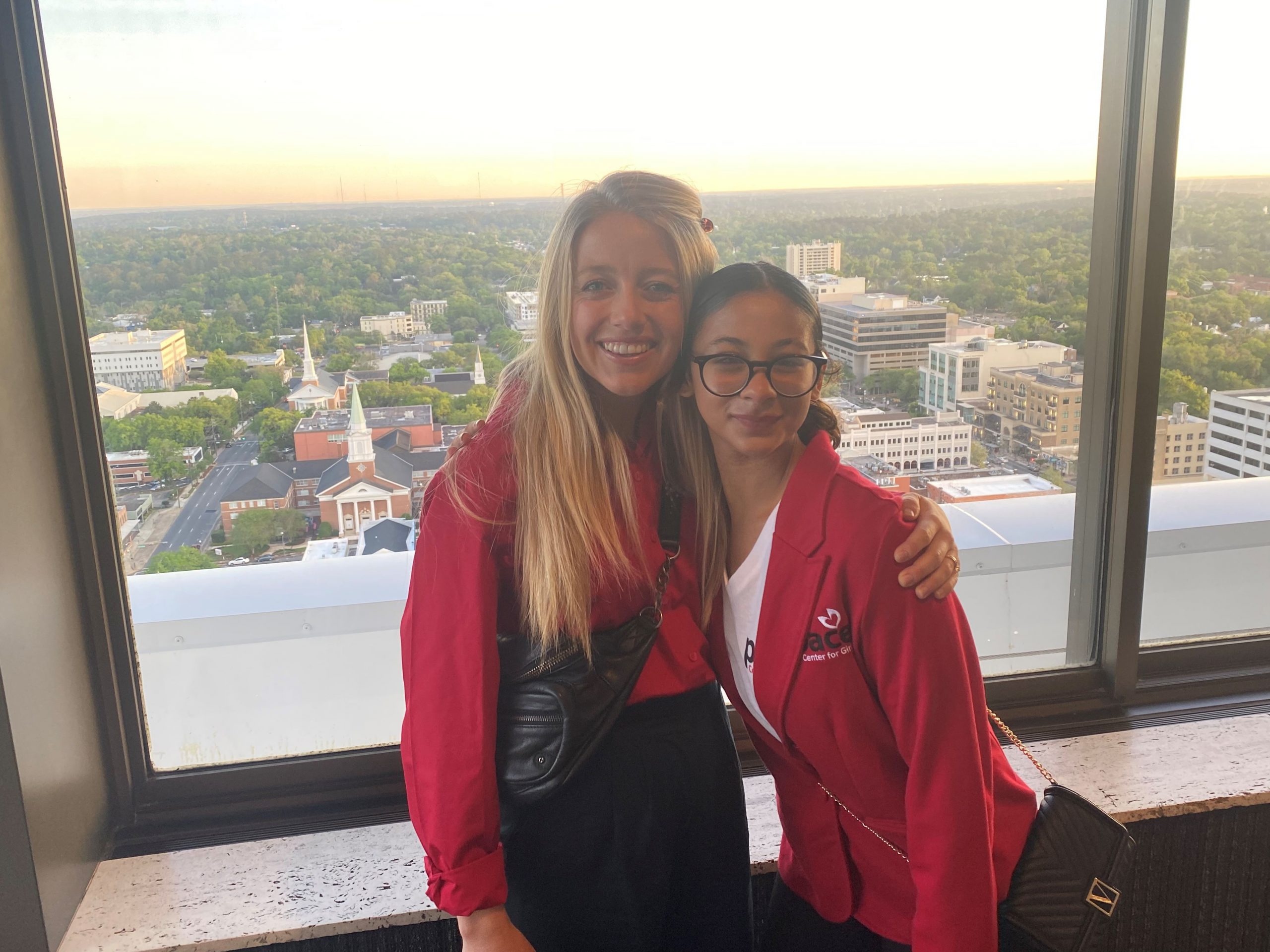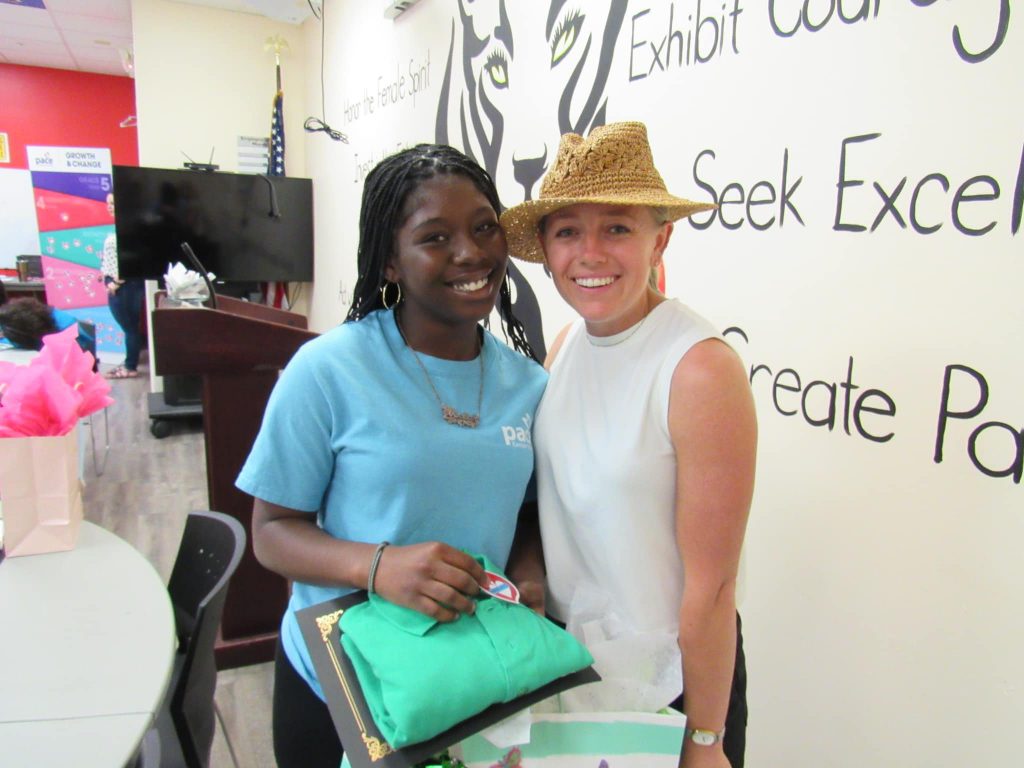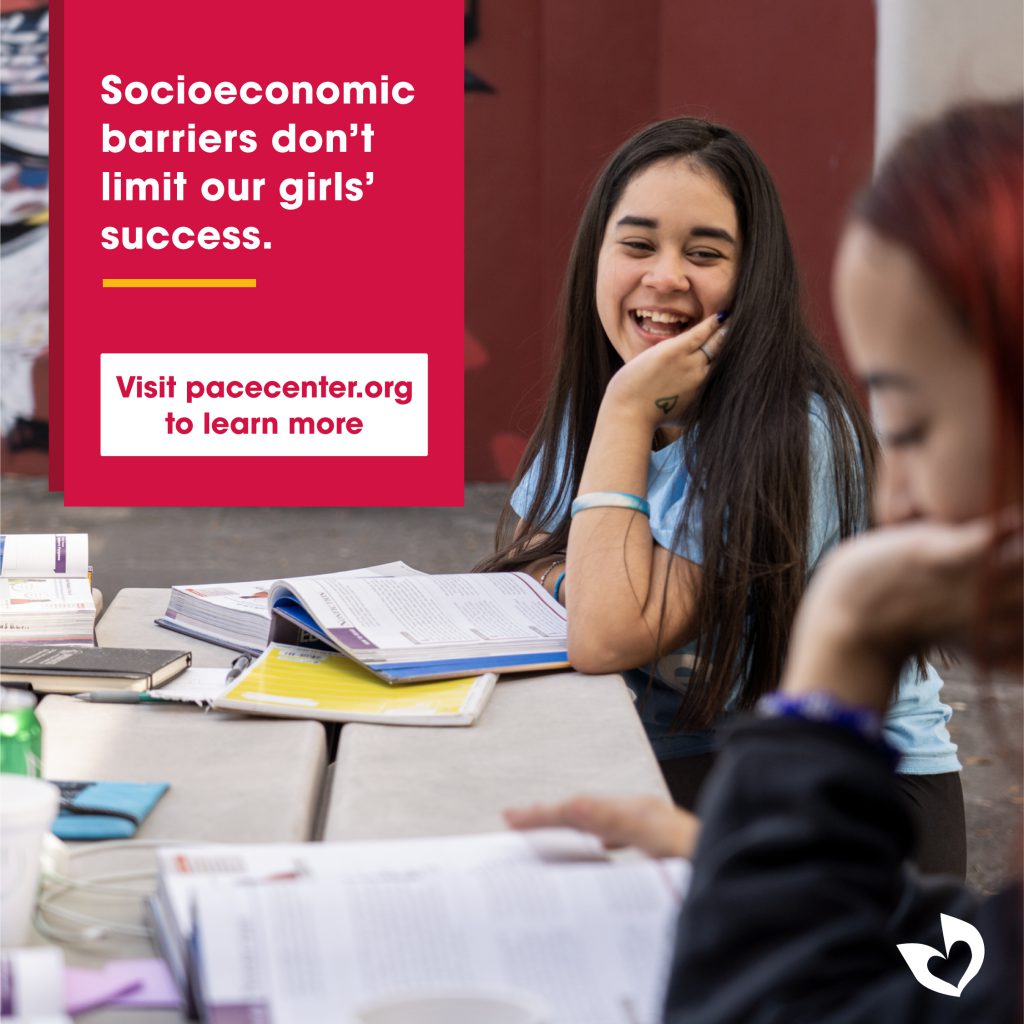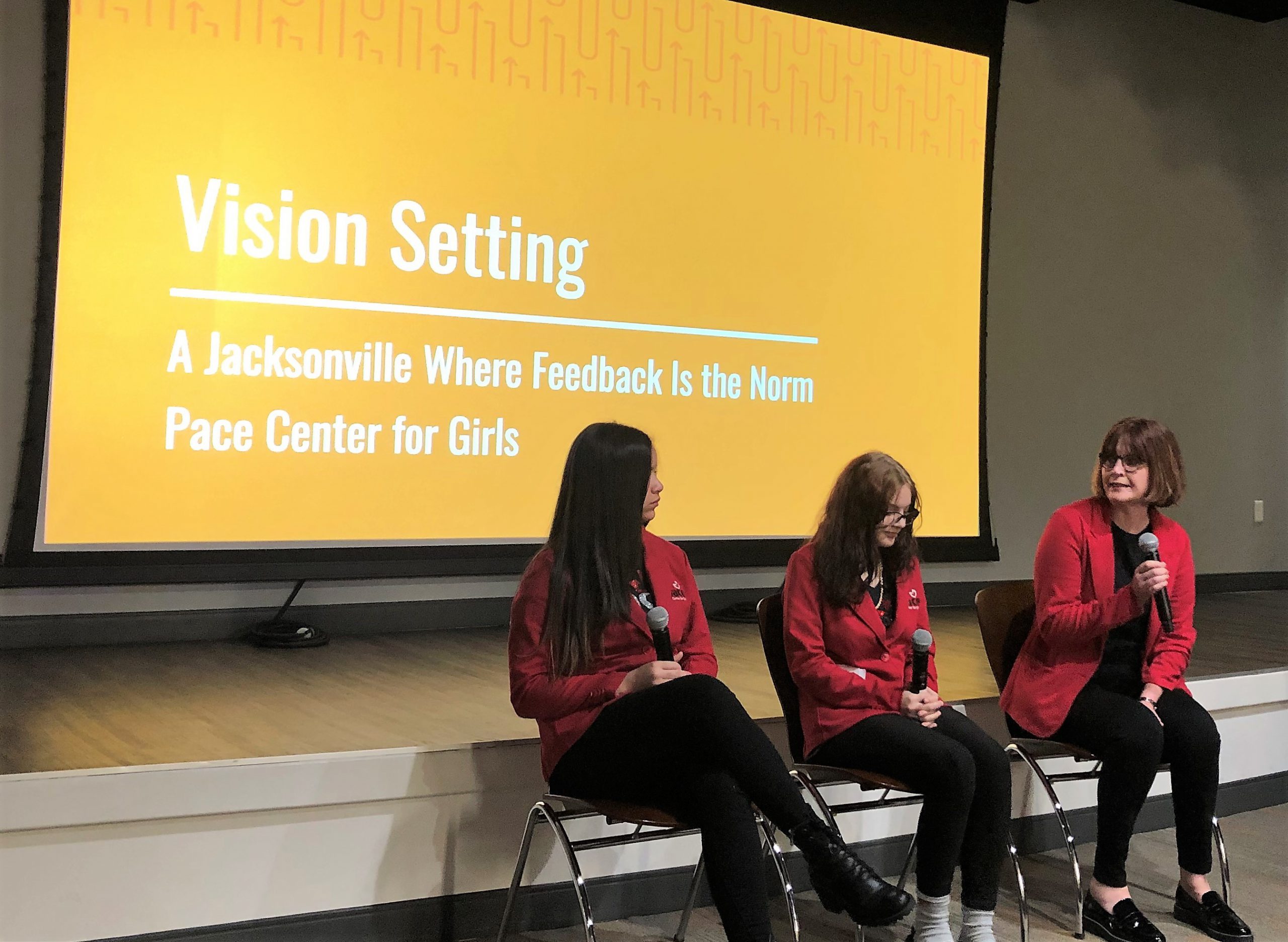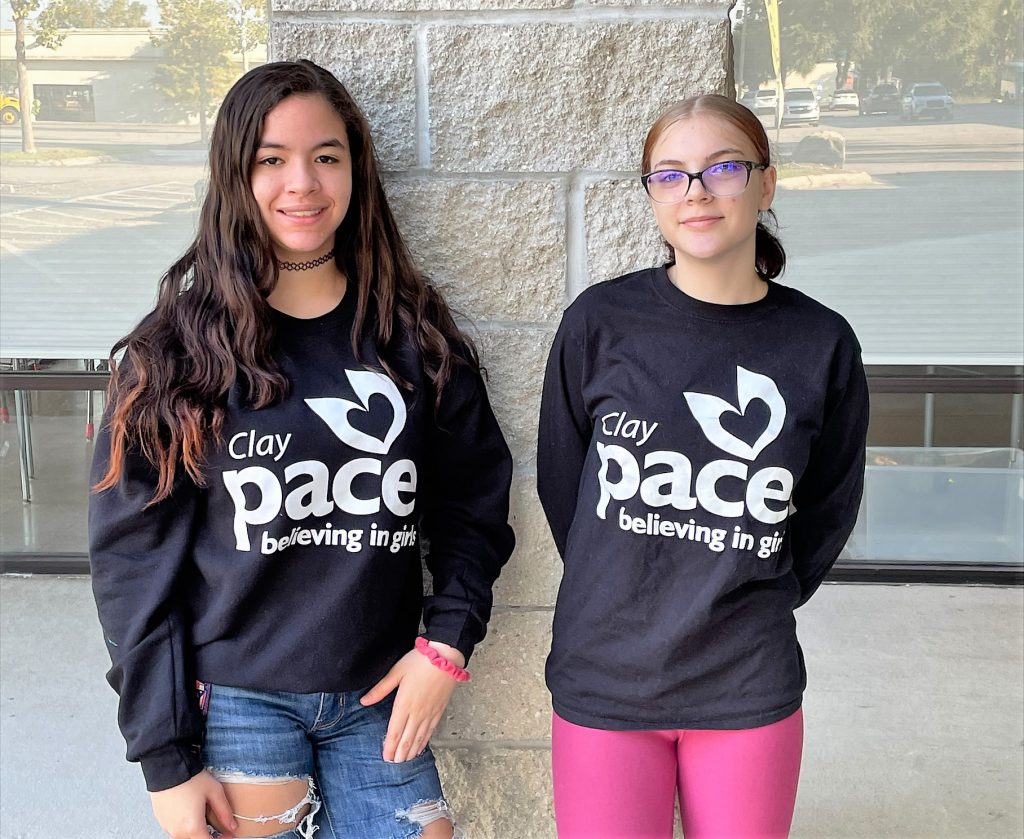Our friends at State Farm Insurance and local agents are working alongside Pace girls to celebrate graduation season. Pace received a $90,000 grant from State Farm Insurance to support career and college preparation for girls like Emily and Toni. Thank you for your commitment to find the great in every girl.
Emily, a senior at Pace Broward, hadn’t attended school in two months before coming to Pace. Toni, also a senior at Pace Broward, reflects that “Pace literally turned my life around.” From immediate counseling services to one-on-one educational support, Pace provides a holistic support system for girls to help them become strong, compassionate, and successful women.
Emily, now on her second to last day of high school, recognizes that Pace “changed my mindset on how I see things. I wasn’t an optimist – I wasn’t able to see the positive side of things. Being here is a weird change, honestly, coming from a place that’s not supportive… everybody [at Pace] wants to be here and help the students.”
Inspired by her Pace Reach therapist, Emily will begin studying Psychology at Broward College in June to one day become a therapist herself. Having lost someone very close to her by suicide, she hopes “maybe I can help people and change the outcome so it’s not devastating to the person, the family, and people around them.” Emily’s support team could not be prouder of her for using her experiences to make the world a better place; she’s even receiving a scholarship from Pace to help with her college tuition.
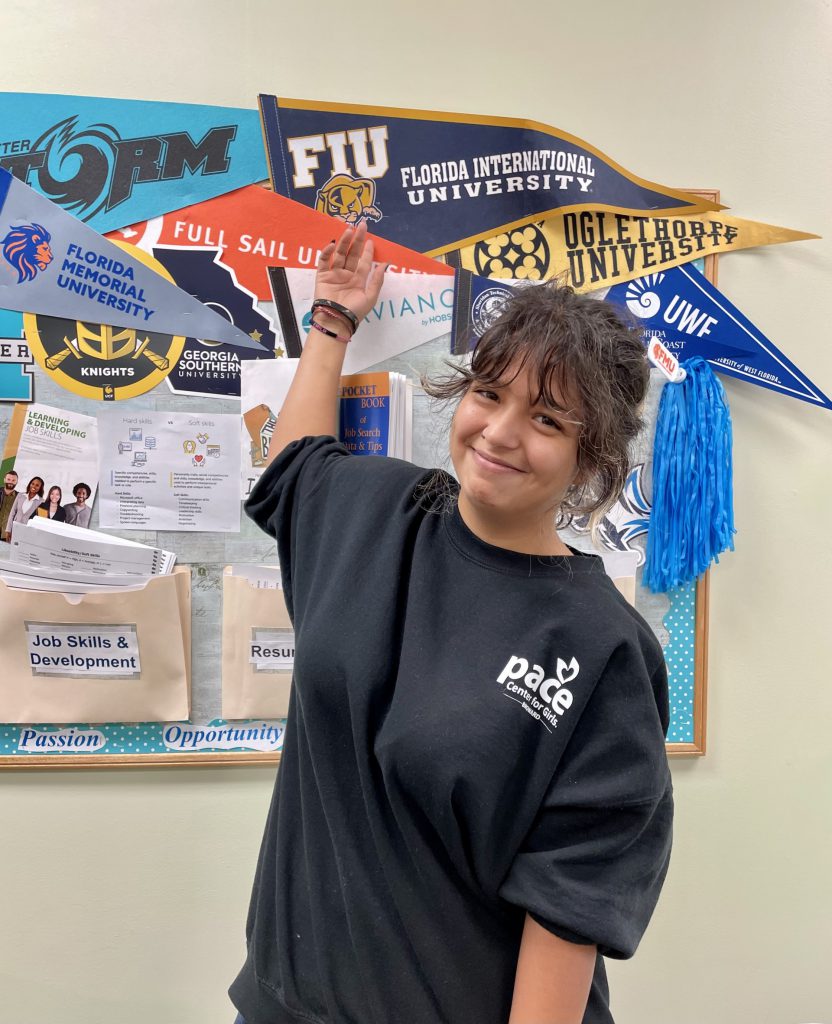
For Toni, a career in cosmetology – much like attending a Pace Center – is a family tradition. She is excited to continue following in her mother’s footsteps by enrolling in cosmetology school after graduation. With her teachers’ help, Toni has been able to research different schools to find the right fit.
While the road to graduation hasn’t been easy, the past five years at Pace have been transformative for Toni. She says: “The whole program helped me a lot with my behavior issues. I love my counselors, because they listen to their girls, they hear them out and advocate for them.”

Graduation at Pace Broward is fast approaching, and Emily and Toni both feel a mixture of anxiety and excitement. The girls are nervous about the changes to come, and the many unknowns that exist in adulthood, but they know they have bright futures ahead. Toni says: “I’m excited because I get to go out in the real world and explore new things,” while Emily shares that she can’t wait to spend her life “doing something I’m actually interested in, so it’s going to be a lot of fun.”
With graduation upon them, Emily and Toni have sage advice for their younger selves, and for girls like them too. Toni reflects: “I would tell my younger self to never give up on your dreams and keep going.” Emily gratefully acknowledges that “things do change, and it’s not going to stay the same forever, even though it feels like it.”


